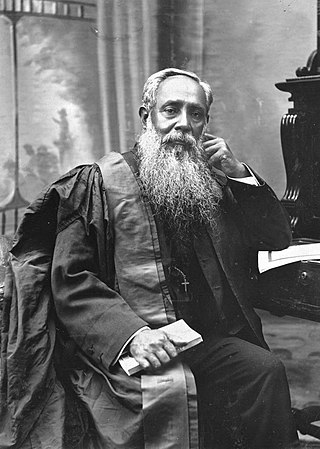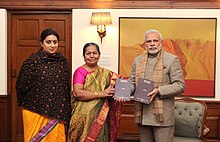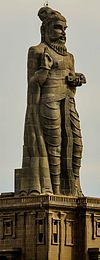Tirukkural, also known as the Kural, an ancient Indian treatise on the ethics and morality of the commoner, is one of the most widely translated non-religious works in the world. Authored by the ancient Tamil poet-philosopher Thiruvalluvar, the work has been translated into 57 languages, with a total of 350 individual translations, including 143 different renderings in the English language alone.

John Lazarus (1845–1925) was a Christian missionary to India who rendered the Tirukkural into English. He revised the work of his predecessor William Henry Drew, who had already translated the first 63 chapters of the Tirukkural, and translated the remaining portion of the Kural text.
Hindi perhaps has many translations of the Tirukkural. As of 2000, there were at least 19 translations of the Kural text available in Hindi. Many of these translations are in verse form.
Kannada has at least eight translations of the Tirukkural available as of 2014. Both prose and verse translations have been made in Kannada.
As of 2015, there are at least four translations of the Tirukkural available in Russian.
As of 2020, there were at least four translations of the Tirukkural available in Arabic. The Kural text is the first, and so far the only, Tamil work to be translated directly into Arabic. It is also the first Tamil work to be released in the Arabian soil.
Telugu is one of the Indian languages that has had the earliest Tirukkural translations in modern times. As of 2000, there were at least 14 translations of the Kural text available in Telugu.
As of 2015, there were at least three Gujarati translations available of the Tirukkural.
As of 2015, there were at least five Sanskrit translations available of the Tirukkural 724 into sanskrit
As of 2015, Urdu has at least two translations available of the Tirukkural.
Charles Edward Gover (1835–1872) was a British folklorist in Madras, India. He was one of the earliest translators of the Tirukkural into English.
A. Chakravarti, who served the Indian Educational Service (IES), was a professor of philosophy at the Presidency College in Chennai, India. He is known for translating the Tirukkural into English.
G. Vanmikanathan, better known as G. V. Pillai, was a Tamil scholar, author, founder and organiser of the 'Tirukkural Prachar Sangh'. He is known for translating the Tirukkural into English.
P. S. Sundaram (1910–1998), born Pazmarneri Subrahmanya Sundaram, was an Indian professor of English, best known for translating the Tirukkural and various Tamil classics into English. He had degrees in English from the University of Madras and the Oxford University. He served as professor of English for about 40 years in different parts of North India.
S. M. Diaz was the Inspector-General of Police of Tamil Nadu. He was also a professor of economics and the first director of the Sardar Vallabhbhai Patel National Police Academy that trains officers who are inducted into the Indian Police Service. He is known for translating the Tirukkural into English.
E. S. Ariel, also referred to as Monsieur Ariel by his contemporaries, was a 19th-century French translator known for his French translation of the ancient Indian philosophical text of the Tirukkural. He translated select couplets of the Tirukkural into French in 1848 and published it in Paris under the title Kural de Thiruvalluvar . Although the first French translation of the Kural text was made by an unknown author in 1767, which Ariel had mentioned in his work, it was Ariel's translation that brought the ancient work to the French world.
Shuzo Matsunaga is a Japanese engineer best known for translating the Kural into Japanese from its English version.
Soibam Rebika Devi is an Indian translator who is best known for translating the Tirukkural into Meitei.
The Book of Inbam, in full Iṉbattuppāl, or in a more sanskritized term Kāmattuppāl, also known as the Book of Love, the Third Book or Book Three in translated versions, is the third of the three books or parts of the Kural literature, authored by the ancient Indian philosopher Valluvar. Written in High Tamil distich form, it has 25 chapters each containing 10 kurals or couplets, making a total of 250 couplets all dealing with human love. The term inbam or kamam, which means 'pleasure', correlates with the third of the four ancient Indian values of dharma, artha, kama and moksha. However, unlike Kamasutra, which deals with different methods of lovemaking, the Book of Inbam expounds the virtues and emotions involved in conjugal love between a man and a woman, or virtues of an individual within the walls of intimacy, keeping aṟam or dharma as the base.

Pierre-Eugène Lamairesse was a French civil and mining engineer. A former student of the École Polytechnique, he was in charge of dams and other irrigation projects in Pondicherry and Karaikal in India between 1860 and 1866. He is best known for his translation of the Tirukkural and other ancient Indian works into French.



